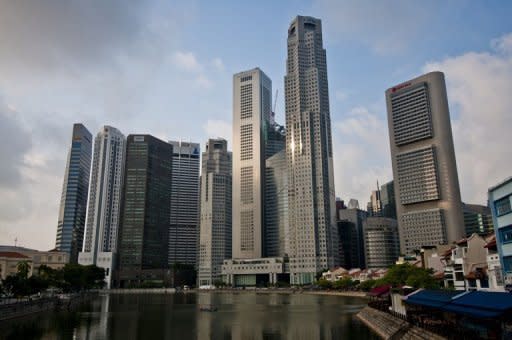Winds of change blowing at Singapore’s workplaces

By Seah Chiang Nee
The winds of political change may now be blowing across Singapore's workplaces in favour of locals who face recruitment discrimination from foreign managers.
The problem involves expatriates — who hail from the West and the region — giving special preference to their own nationals during recruitment and promotion.
The Ministry of Manpower has drawn up new guidelines to try to stem it from developing into a national crisis.
It is a timely move in view of an expected downturn in the coming year and a new wave of retrenchments.
This measure is also the latest aimed at placating public unhappiness. Earlier, the government has been reducing the admission rate of foreigners into Singapore.
The number of permanent residency permits has been cut — although not in numbers that many Singaporeans want to see.
Pro-business Singapore is one of the most open cities in the world for foreign professionals.
With its liberal immigration, thousands have flocked here from Malaysia, Philippines, India and other countries in the past decade.
Many ended up running companies or becoming human resource managers or recruitment agents.
In previous downturns, some bosses were known to have used the excuse of job shedding to bring in more relatives or friends.
Overdue move
"It's about time the government looks into foreign-owned companies dead set on hiring their own kind," a Singaporean professional said.
"Many of the Indian IT shops here do so."
For sometime now, this is also practised by Filipino and Malaysian executives who recruit their own nationals, bypassing qualified locals.
(A trickle of retrenchments has already been reported in some sectors, although the overall employment picture remains good.)
A union leader recently said that in previous recessions in 1986 and 1998, "Singaporeans were retrenched first and foreigners stayed. (It should be) the other way round," he complained.
"The government should look after Singaporeans more seriously when the crunch comes."
For some less-than-professional foreigners, the Asian culture of protecting kith and kin and "our own people" comes into play.
"When they took office, some immediately wired their friends or relatives and got them into the company," a local IT engineer said.
Sometimes, even when there was no vacancy, he said, they would conspire to force out some unlucky Singaporeans and had them replaced.
The new guidelines were described in a large newspaper headline that appealed to foreign managers: "Don't discriminate against Singaporeans!"
They followed an increasing number of complaints, according to a news report — 51 in the first nine months of this year.
One of the guidelines required that job advertisements do not exclude Singaporeans, as an increasing number had tended to do.
One company early this year wanted an "Architectural Structural coordinator" listing these requirements: a Diploma in civil engineering, three years relevant experience, and "preferred Indian citizenship".
Following an angry public reaction, it apologised. The guidelines also called for recruiting firms to develop their Singaporean employees for higher level jobs.
Employers will also be encouraged to work with educational institutions, career centres and recruitment agencies when seeking Singaporean recruits.
For several decades, the trade unions here have been relatively tame, long conditioned by Lee Kuan Yew's leadership. Strikes are forbidden and industrial action frowned upon.
But with the changed politics, no one can predict how long this will last.
More noise expected
According to the Minister of State for Manpower, Tan Chuan Jin, one of the People's Action Party's (PAP) fresh leaders who announced the guidelines, hinted that things might not be the same for long.
The tripartite government-union-employer relationship could get "noisier" he said, adding that it was something "we will take in our stride".
With Singapore increasingly dependent on imported workers — and foreign managers — striking a balance is no longer an easy task, but Tan declared: "Discriminatory practices have no place in Singapore."
Last month in a rare public disagreement, Singapore's two main groups, one representing workers and the other employers, disagreed publicly over the curb on foreign workers.
The unions, affiliated to the ruling party, wanted more measures to reduce employers' dependency on foreign labour because it suppressed local wages and led to domination by foreigners.
The employers' federation, however, issued a statement declaring that any restrictions would increase costs and make businesses less competitive.
Singaporeans have been a little relieved by the move, but most reserved their judgment to await results.
The younger set of Singaporeans is cynical.
"We must be the only country that needs to plead with foreigners living among us to not displace us," one blogger said.
"Why did the government allow the situation to deteriorate to the extent that Singaporeans are discriminated against in their own country?" asked Tracy Tan.
"This is pathetic. No other government would allow this to happen."
Others praised the Manpower Ministry for issuing the warning.
Patriot Wong added: "Singaporeans are not anti-foreigners. We welcome talented foreigners who come with their skills and expertise.
"However, many employers are taking advantage to hire foreign workers at the expense of Singaporeans with the excuse of lowering their business costs."
A former Reuters correspondent and newspaper editor, the writer is now a freelance columnist writing on general trends in Singapore. This post first appeared on his blog www.littlespeck.com on 5 November 2011.

